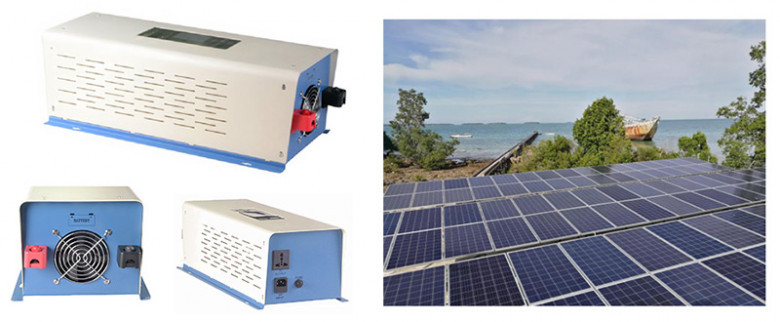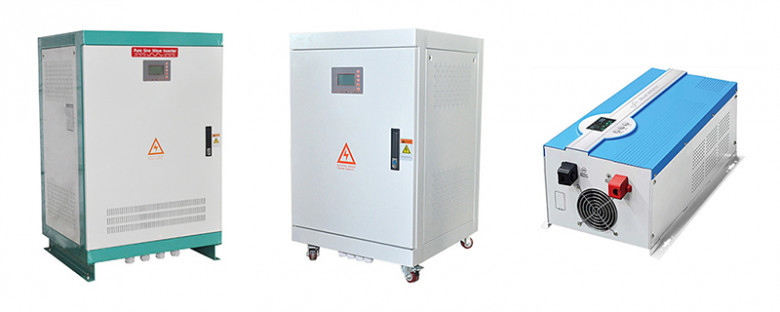views
How Off-Grid Inverters Work
Off-grid inverters use advanced technology to convert DC power from batteries into AC power. The process involves several steps:
1. DC-AC Conversion: The inverter boosts the DC input voltage using a push-pull mechanism and then uses an inverter bridge with SPWM (Sinusoidal Pulse Width Modulation) technology to produce a stable 220V AC output.
2. Power Management: They manage the flow of power between the batteries and the electrical load, ensuring that devices receive a consistent and reliable power supply.
3. Charging Capability: Many off-grid inverters also include a solar charge controller and an automatic generator starter module, which help manage the charging of batteries from solar panels and backup generators, respectively.
Applications of Off-Grid Inverters
Off-grid inverters have a wide range of applications:
- Remote Areas: They are ideal for powering homes and businesses in remote areas without access to the main electrical grid.
- - Backup Power: In regions prone to outages, off-grid inverters provide reliable backup power by storing energy in batteries.
- - Mobile Applications: Off-grid inverters are used in mobile applications such as RVs, boats, and caravans, allowing travelers to enjoy the comforts of home while on the move.
- Emergencies: During natural disasters or emergencies, off-grid inverters can be crucial in providing power for essential services, such as communication devices, medical equipment, and lighting.

Advantages of Off-Grid Inverters
Off-grid inverters offer several advantages:
1. Independence: They operate independently without relying on external grid support, making them suitable for remote areas.
2. Stability and Reliability: They provide a stable and reliable energy supply, unaffected by distance and space limitations.
3. Efficiency and Environmental Friendliness: They produce no pollutants or carbon dioxide emissions, achieving truly clean energy and saving on energy costs.
4. Adaptability and Flexibility: They can operate under various environmental conditions and meet diverse power needs.
5. Economic Viability: While the initial investment may be high, the long-term energy cost savings and environmental benefits make them valuable.
Choosing the Right Off-Grid Inverter
When selecting an off-grid inverter, consider the following factors:

- Power Capacity: Calculate the total wattage of all appliances you plan to power and add a 20–30% buffer.
- Battery Compatibility: Ensure the inverter works with your battery bank (e.g., lithium, AGM, or lead-acid).
- Voltage Support: Determine whether you need 12V, 24V, or 48V support.
- Waveform: For sensitive electronics, always choose pure sine wave inverters.
- Surge Capability: Some appliances require more power to start than to run, so look for a high surge rating.
- Extra Features: Consider built-in MPPT solar charge controllers, remote monitoring, and automatic generator start for added convenience.
Conclusion
Off-grid inverters are vital for transitioning to renewable energy and sustainable living. They offer energy independence, reliability, and environmental sustainability. As technology advances, these inverters are becoming more efficient, affordable, and accessible, making them a viable option for a wide range of applications. Whether you're looking to power a remote cabin, provide backup power for your home, or embark on a sustainable lifestyle, understanding off-grid inverters is a step in the right direction.



Comments
0 comment